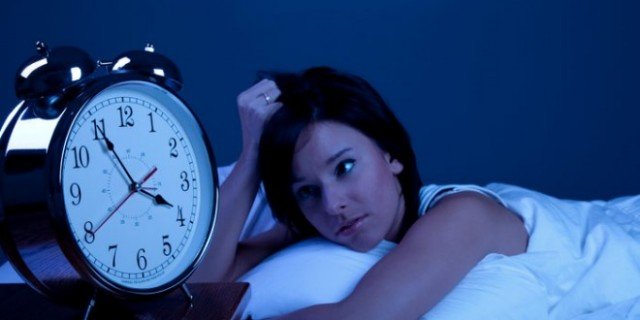US researchers have found that brain scans of people who say they have insomnia have shown differences in brain function compared with people who get a full night’s sleep.
Researchers at the University of California, San Diego, said the poor sleepers struggled to focus part of their brain in memory tests.

Brain scans of people with insomnia have shown differences in brain function compared with people who get a full night’s sleep
Other experts said that the brain’s wiring may actually be affecting perceptions of sleep quality.
The findings were published in the journal Sleep.
People with insomnia struggle to sleep at night, but it also has consequences during the day such as delayed reaction times and memory.
The study compared 25 people who said they had insomnia with 25 who described themselves as good sleepers. MRI brain scans were carried out while they performed increasingly challenging memory tests.
One of the researchers, Prof. Sean Drummond, said: “We found that insomnia subjects did not properly turn on brain regions critical to a working memory task and did not turn off <<mind-wandering>> brain regions irrelevant to the task.
“This data helps us understand that people with insomnia not only have trouble sleeping at night, but their brains are not functioning as efficiently during the day.”
A Norwegian study has found that people who have trouble drifting off to sleep may be at increased risk of heart failure.
The study, published in the European Heart Journal, followed more than 50,000 people for 11 years.
Scientists found those who suffered several nights of poor sleep were more likely to develop the condition, in which the heart fails to pump properly.
Experts say further research is needed to see if a lack of sleep causes heart failure or the link is more complex.
Scientists at the Norwegian University of Science and Technology looked at more than 50,000 people aged between 20 and 89. At the beginning of the study, none of them were known to have heart failure.
In this condition the muscles of the heart are often too out of shape to do their job properly – they may be too weak or too stiff to pump blood around the body at the right pressure.
People with the disorder may feel increasingly breathless and exhausted.
And as heart failure worsens, it can be difficult to get a full night’s rest – but the Norwegian study is one of few to investigate whether poor sleepers without the condition are at risk of getting it in later life.

A Norwegian study has found that people who have trouble drifting off to sleep may be at increased risk of heart failure
During the research, the participants were asked whether they had any difficulties getting to sleep or staying asleep and whether they felt fully restored after a night’s slumber.
People who had trouble falling asleep and remaining asleep each night were three times more likely to develop heart failure than those who reported no trouble sleeping.
Those who experienced substandard sleep that failed to leave them fully refreshed were also at risk.
And this link between a bad night’s sleep and heart failure remained true despite researchers taking smoking, obesity and other well known triggers of insomnia and heart problems into account.
The researchers say it is unclear exactly why poor sleep and heart failure are associated in this way.
Dr. Lars Erik Laugsand, lead author of the study, said: “We don’t know whether insomnia truly causes heart failure. But if it does, the good thing is it is a potentially treatable condition.
“So evaluating sleep problems might provide additional information in the prevention of heart failure.”
He suggests the lack of sleep may provoke harmful responses in the body.
“When you have insomnia your body releases stress hormones which in turn may effect the heart in a negative way,” he said.
The same team of researchers has previously reported a link between people prone to insomnia and heart attacks.
And diabetes, depression and poor brain function have all been linked to missing restful hours in bed.


